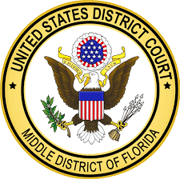Understanding Florida Medical Malpractice Laws: What You Need to Know
According to a study conducted by John Hopkins University, over 250,000 people are killed due to medical errors every year. This shocking figure indicates that medical error is the third leading cause of death in the United States. Unfortunately, the medical malpractice attorneys at Elkin-Peck PLLC have seen the devastating impact that serious cases of medical malpractice can have on your health, finances, and overall quality of life, and if you believe you have been a victim of medical malpractice in Spring Hill, FL, there are a few things about Florida’s medical malpractice laws that you should be aware of.
Who Can Commit Medical Malpractice in Florida?
Many Floridians are unaware of the fact that medical malpractice can be committed by a host of different medical providers, not just physicians. Medical malpractice is actually referred to as “medical negligence” under Florida law, and F.S.§766.202 defines each category of healthcare providers that can commit medical negligence including:
- Nurses
- Doctors
- Chiropractors
- Podiatrists
- Optometrists
- Dentists
- Midwifes
- Hospitals
- Ambulatory Surgical Centers
- Blood Bank
- Physical Therapists
Moreover, medical facilities can be liable for mistakes their administrative employees, who might not even be licensed medical professionals, make under the doctrine of respondeat superior, which allows an employer to be held liable when an individual is injured as a result of one of their employee’s negligence. Meaning, if a staff member at a doctor’s office or hospital negligently commits an act that causes you to sustain injuries such as giving you the wrong medication or injuring you during the course of rendering care, the medical facility could still be liable for your injuries despite the fact that it was a staff member as opposed to a doctor that ultimately caused your injuries.
Types of Medical Malpractice
Unfortunately, many cases of medical malpractice go undetected by the patient, because medical malpractice can take many forms. As a result, if you suspect you have been a victim of malpractice, you should contact a medical malpractice attorney as soon as possible. Common types of medical malpractice include:
- Misdiagnosis: Diagnosing illnesses and injuries is a fundamental part of a physician’s job, but doctors can and do make mistakes. Unfortunately, it is the patient that often suffers the consequences of a misdiagnosis. This type of medical malpractice occurs when a physician misdiagnosis you with the wrong illness or injury, and as a result, your physical condition worsens. As such, you should always seek a second opinion if you have been ill or injured, and you do not recover or your condition worsens after being diagnosed.
- Delayed Diagnosis: Similar to a misdiagnosis, this type of medical malpractice occurs when a physician first renders the wrong diagnosis, and then, after you have had a delay in treatment, properly diagnosis you. In this situation, similar to a misdiagnosis, it is the worsening of your symptoms and condition due to the misdiagnosis that qualifies as your injuries.
- Surgical Errors: Surgical errors are probably one of the most shocking and horrific categories of medical malpractice. For example, in a recent case of medical error, a man at University Hospital had the wrong foot amputated after going in for surgery. The mistake was not discovered until after the man woke up from the surgery. Other types of surgical errors include improper use of medical equipment, improper implantation of medical devices, using unsterile utensils, etc.
Statute of Limitations for Medical Malpractice Claims
At Peck Law our medical malpractice attorneys feel that they have an obligation to inform the public of basic legal concepts that could be relevant to their claim. One of the most important legal aspects of a medical malpractice claim is the statute of limitations. A statute of limitations is a legal time limit on your ability to file a medical malpractice suit. Under F.S.§766.202, the statute of limitations for a medical malpractice claim is two years from the discovery of the incident with a seven year statute of repose. Meaning, unlike many personal injury claims, where the time period prescribed by the statute of limitations begins to count down on the date of the injury, medical malpractice claims are unique in that many patients don’t immediately know that they have been a victim of malpractice. As a result, the time limit for the statute of limitations begins when you discover the incident. With that being said, two years is not very long to file a claim, and if you wait too long, you could be barred from filing a malpractice claim. Consequently, you should always contact a medical malpractice attorney immediately if you think you have been a victim of medical malpractice.
What Are the Types of Things I Can Receive Compensation for in a Medical Malpractice Claim?
There are two broad categories of damages you seek compensation for in a medical malpractice claim, compensatory damages and punitive damages. Punitive damages are awarded not to compensate the victim of malpractice but to punish the defendant for their actions. However, pursuant to F.S.§768.72, punitive damages can only be awarded if the trier of fact, a judge or a jury, finds that a defendant is personally guilty of gross negligence or intentional misconduct. Making a mistake, even a mistake that constitutes malpractice, is often not enough to warrant an award of punitive damages. Rather, the doctor’s action must be particularly egregious.
In contrast, compensatory damages are awarded to compensate a victim for the damages that the act of malpractice had on their body and their life. There are two broad categories of compensatory damages, economic and noneconomic damages. Economic damages can usually be accurately quantified through the introduction of evidence such as expert testimony from you doctors. This category of damages covers things such as medical expenses, lost wages, and future medical expenses. Noneconomic damages, however, are much more difficult to quantify, because the judge or jury must consider the overall impact your injuries will have on your quality of life. Noneconomic damages compensate you for things such as pain and suffering, mental anguish, and loss of enjoyment of life.
Medical Malpractice Attorney in Spring Hill, FL
If you or a loved one have been a victim of medical malpractice in Spring Hill or Hernando county, give the medical malpractice attorneys at Peck Law a call today. Our attorneys are dedicated to helping you seek the compensation you deserve for you injuries, so don’t wait until it’s too late to file your medical malpractice claim. Call our office today for a free consultation with an attorney you can trust to protect you legal interests.





